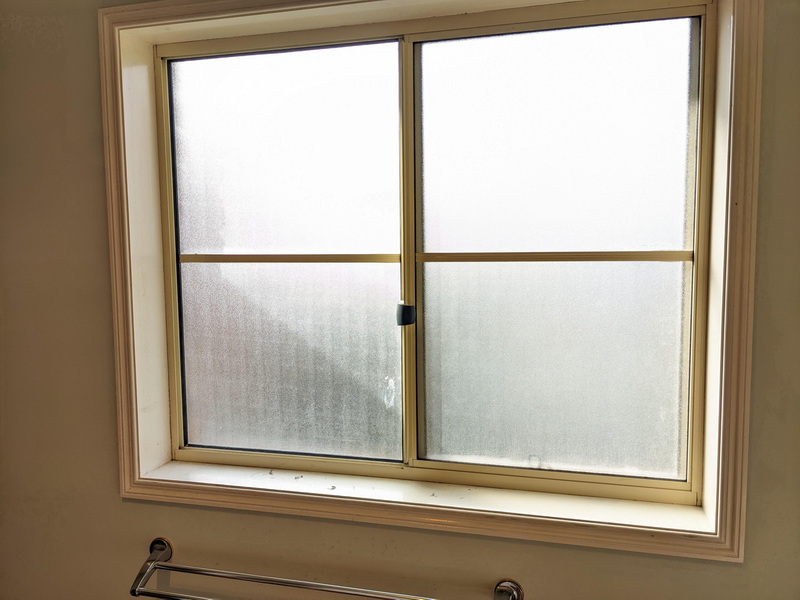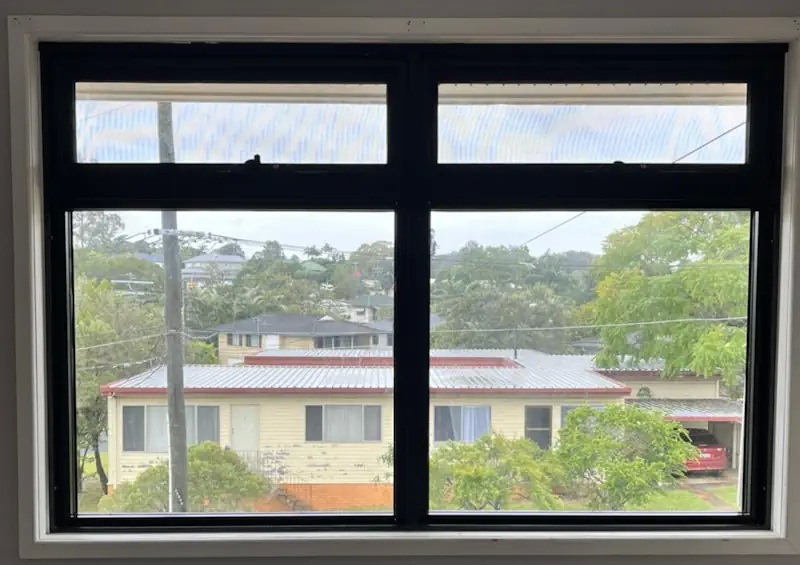English


Views: 222 Author: Dream Publish Time: 2024-12-23 Origin: Site











Content Menu
● The Lifespan of Aluminum Windows
● Factors Affecting the Lifespan of Aluminum Windows
>> Installation
● Benefits of Aluminum Windows
>> Visual Representation of Lifespan Comparison
● Maintenance Tips for Aluminum Windows
● Understanding the Lifespan of Aluminum Windows: Key Factors
● When Is It Time to Replace Your Windows?
● What Should You Look for When Shopping for Aluminum Windows?
● Troubleshooting Common Aluminum Window Problems
>> Dealing with Drafts and Leaks
>> Fixing Stuck or Jammed Windows
>> Addressing Corrosion and Wear
● FAQs
>> 1. How often should I clean my aluminum windows?
>> 2. Can I paint my aluminum windows?
>> 3. What should I do if my aluminum window frame starts to corrode?
>> 4. Are aluminum windows energy efficient?
>> 5. How do I know when it's time to replace my aluminum windows?
Aluminum windows are increasingly popular in both residential and commercial buildings due to their durability, low maintenance, and aesthetic appeal. Understanding the lifespan of aluminum windows is crucial for homeowners and builders alike, as it impacts long-term investment decisions. This article explores the longevity of aluminum windows, factors affecting their lifespan, maintenance tips, and more.

Aluminum windows can last significantly longer than many other window materials. On average, they have a lifespan ranging from 20 to 50 years, depending on various factors such as quality, environmental conditions, and maintenance practices.
- Standard Lifespan: Most aluminum windows are expected to last between 20 to 40 years under normal conditions.
- High-Quality Windows: With proper installation and maintenance, high-quality aluminum windows can last up to 50 years or more.
The longevity of aluminum windows is primarily due to their resistance to corrosion, warping, and other forms of degradation that commonly affect wood and vinyl alternatives.
Several factors influence how long aluminum windows will last:
The quality of the aluminum used in window frames plays a significant role in their durability. High-grade aluminum alloys are designed to withstand extreme weather conditions and resist corrosion better than lower-quality options.
Proper installation is critical. Poorly installed windows can lead to issues such as leaks and drafts, which can significantly shorten their lifespan. Hiring experienced professionals for installation is highly recommended.
- Climate: Aluminum windows perform well in various climates but may face challenges in coastal areas where salt exposure can lead to corrosion if not properly treated.
- Weather Extremes: Extreme temperatures can affect the seals and finishes of aluminum windows. Regular maintenance can mitigate these effects.
Regular cleaning and maintenance can extend the life of aluminum windows. Neglecting these tasks may lead to dirt accumulation, which can cause wear over time.
Aluminum windows offer numerous advantages that contribute to their popularity:
- Durability: They do not warp or crack like wood and are resistant to insect damage.
- Low Maintenance: Unlike wood frames that require regular painting or staining, aluminum frames only need occasional cleaning.
- Energy Efficiency: When combined with double or triple glazing, aluminum windows provide excellent insulation properties.
- Design Flexibility: Aluminum frames can be manufactured in a variety of styles and colors, allowing for greater customization.
Here's a bar graph comparing the average lifespans of different window materials:
| Window Material | Average Lifespan |
|---|---|
| Aluminum | 20-50 years |
| Vinyl | 20-30 years |
| Wood | 15-30 years |
| Fiberglass | 20-40 years |
To ensure your aluminum windows last as long as possible, consider the following maintenance tips:
1. Regular Cleaning: Clean the frames with warm water and mild detergent at least twice a year. Avoid abrasive cleaners that could scratch the surface.
2. Inspect Seals: Check weather stripping and seals for any signs of wear or damage. Replace them if necessary to maintain energy efficiency.
3. Lubricate Moving Parts: Apply lubricant to hinges and locks annually to ensure smooth operation.
4. Monitor for Damage: Regularly inspect your windows for any signs of damage such as cracks or warping in the frame.
5. Protect Finishes: If your aluminum windows have a powder-coated finish, touch up any scratches immediately to prevent corrosion.
The lifespan of an aluminum window depends on a variety of factors, including material quality, installation, and environmental conditions. High-quality aluminum windows can last from 20 to 45 years or more. This long lifespan makes aluminum windows a top choice for both residential and commercial buildings.
The durability of aluminum is one of its strongest points. Unlike wood, which can warp or rot, or vinyl, which can fade or become brittle over time, aluminum windows remain structurally sound and visually appealing for decades. Environmental factors also play a crucial role; for instance, aluminum windows in coastal areas may experience corrosion more quickly than those in drier locations due to salty air exposure. Nevertheless, with proper maintenance and protective coatings, even windows in challenging environments can have a long lifespan[1][7].

If you're concerned about the state of your existing windows, exploring the signs for when it's time to replace them can be illuminating:
- You want a new look: If you want a new look for your windows, replacement windows are an effective way to change things up.
- You're feeling drafts: When you feel air moving around your windows or hear the wind whistling by, it may be time for replacements.
- Your energy bills are high: New windows are often more energy efficient than older models.
- You struggle to operate your windows: Stubborn windows that don't operate smoothly are frustrating; replacing them can make life more pleasant.
- Your window panes are foggy: Condensation between the panes of double- or triple-glazed windows can indicate failed seals.
- You notice leaks: Moisture intrusion is a major problem; if your old windows are leaking, replacement options may be necessary[1][2].
If you decide that aluminum windows are the perfect pick for your home, there are several considerations:
- Choose a trusted brand: Opting for reputable manufacturers who offer solid warranties is essential for long-term satisfaction.
- Check the powder coating: A high-quality powder coating protects against elements while providing color; this ensures longevity against wear and tear.
- Consider design options: Manufacturers typically offer various styles and colors allowing customization that suits your home's aesthetics.
- Work with a reputable supplier: Ensuring proper installation from a trusted supplier protects your investment under warranty terms[1][2].
Even durable aluminum windows can encounter issues over time. Here are some common problems and solutions:
Drafts and leaks can be major concerns with aluminum windows:
- Inspect seals around the window for gaps.
- Use thermal cameras to identify cold spots.
- Apply new sealant if needed[6].
If your window is stuck:
- Check for debris in the track.
- Lubricate moving parts with silicone spray.
- Ensure proper alignment within the frame[6].
To manage corrosion:
- Clean frames regularly with mild detergent.
- Inspect regularly for rust or wear.
- Use protective coatings as necessary[6].
In summary, aluminum windows are an excellent investment for both new constructions and renovations due to their impressive lifespan and low maintenance requirements. With proper care—such as regular cleaning and timely inspections—these windows can serve homeowners well for decades while enhancing aesthetic appeal. Their durability against various environmental challenges makes them suitable for diverse climates, further solidifying their place as a favored choice among property owners.

You should clean your aluminum windows at least twice a year using warm water and a mild detergent.
Yes, you can paint aluminum windows; however, it's recommended to use special paints designed for metal surfaces to ensure durability.
If you notice corrosion on your aluminum window frame, clean the area thoroughly and apply a protective coating or touch-up paint as needed.
Yes, when paired with double or triple glazing, aluminum windows provide excellent insulation properties that enhance energy efficiency.
Signs that it may be time to replace your aluminum windows include difficulty opening or closing them, visible damage like cracks or warping, or significant drafts coming through the frames.
[1] https://www.americanwindowcompany.com/how-long-do-aluminum-windows-last/
[2] https://www.americanwindowcompany.com/the-pros-and-cons-of-aluminum-windows/
[3] https://www.aiswindows.com/blog/aluminium-windows-maintenance-complete-guide/
[4] https://aluminium-windows-and-doors.co.uk/lifespan-of-aluminium-doors-and-windows/
[5] https://www.wideline.com.au/how-long-do-aluminium-windows-last/
[6] https://windowhardwaredirect.com/blogs/news/essential-tips-for-effective-aluminum-window-repair-a-comprehensive-guide
[7] https://www.curmawins.com/news/how-long-do-aluminum-windows-last
[8] https://aluminiumrevival.com.au/aluminium-windows-restoration-basics/benefits-and-downsides-of-aluminium-windows/
[9] https://astraframe.co.uk/blog/how-long-do-aluminium-windows-last/
[10] https://nanyangaluminium.com/benefits-of-aluminum-windows/
Seven Requirements for External Doors And Windows of Passive Rooms
How Much Do You Know about The Design Standards for Aluminum Alloy Door And Window Dimensions?
Welding Vs Stainless Steel Fabrication: Understanding The Manufacturing Process Differences
Stainless Steel Fabrication Vs Powder Coated Steel: Durability And Cost Comparison
CNC Machining Vs Stainless Steel Fabrication: Pros And Cons for Industrial Use
Stainless Steel Fabrication Vs Carbon Steel Fabrication: Key Differences Explained
Stainless Steel Fabrication Vs Aluminum Fabrication: Which Is Right for Your Project?
Stainless Steel Grades 201 Vs 304: Cost Vs Performance Breakdown
316L Vs 316 Stainless Steel Grades: Which Is Better for Corrosion Resistance?
Comparing Austenitic Vs Martensitic Stainless Steel Grades: What You Need To Know?
